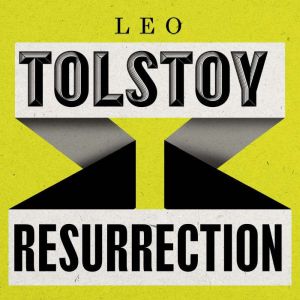
List: $24.99
| Sale: $17.50
Club: $12.49
Resurrection
Author: Leo Tolstoy
Narrator: Malk Williams
Unabridged: 19 hr 25 min
Format: Digital Audiobook Download
Publisher: SNR Audio
Published: 05/18/2023
Synopsis
Resurrection is the last of Tolstoy's major novels. It tells the story of a nobleman's attempt to redeem the suffering his youthful philandering inflicted on a peasant girl who ends up a prisoner in Siberia. Tolstoy's vision of redemption, achieved through loving forgiveness and his condemnation of violence, dominate the novel. An intimate, psychological tale of guilt, anger, and forgiveness, Resurrection is at the same time a panoramic description of social life in Russia at the end of the nineteenth century, reflecting its author's outrage at the social injustices of the world in which he lived.